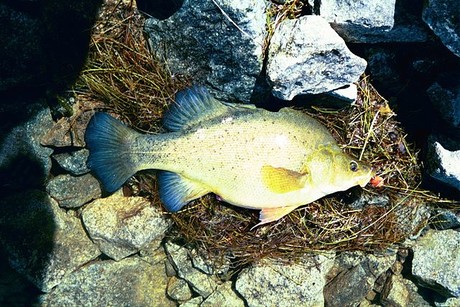Genetic variation and harsh habitats help fish resist climate change

In honour of World Wetlands Day, Flinders University researchers have revealed how the DNA of freshwater fish in the Murray–Darling Basin provides clues as to which species have natural resilience against climate change.
The Murray–Darling Basin is one of Australia’s most ecologically and economically important wetland habitats, acting as home to 46 species of native fish — which have been reduced to 10% of their pre-colonisation population levels due to the loss and degradation of habitat. The silver lining is that the harshness of this habitat has helped certain species become ‘genetically wired’ to cope with future environmental change, according to the Flinders researchers.
“Populations that are adaptively divergent but maintain high gene flow may have greater resilience to environmental change as gene flow allows the spread of alleles that have already been tested elsewhere,” the researchers hypothesised in the journal Molecular Ecology. “In addition, populations naturally subjected to ecological disturbance may already hold resilience to future environmental change.”
Looking to prove this theory, the researchers conducted an ecological genomic study on populations of golden perch — a yellow or gold-coloured native fish species found primarily in the Murray–Darling system. According to study co-author Dr Catherine Attard, fish populations like the golden perch have a high resilience to environmental change due to their DNA make-up — enough to combat the damage that it is being done to their already volatile habitat.
“By analysing the genetic variation of golden perch populations in the Murray–Darling Basin, we have indeed been able to show that environmental variability is a driving force in genetic diversity and natural selection and may help futureproof the species in an increasingly human-modified world,” Dr Attard said.
“The survivabilty of the golden perch is aided by the fact that this fish species can traverse thousands of kilometres and brood in a number of different habitats along the Murray–Darling flow line, enabling it to distribute its genetic diversity.”
In contrast, the research team found that smaller native fish in the Murray–Darling, particularly the threatened southern pygmy perch, are less likely to cope with climate change as they are incapable of moving long distances.
“Their populations have become fragmented and so, even if they were genetically resilient to environmental change, their diversity cannot currently spread to newly altered habitats,” Dr Attard explained.
With climate change expected to increase aridity across our river systems and further alter native habitats, Dr Attard said there “has never been a better time to study the genetic resilience of our native species and use this information to fortify our aquatic wilderness”.
“We can now help pinpoint which species are particularly threatened by climate change and enact conservation strategies to save them, such as translocation or captive breeding followed by reintroduction to favourable habitats,” she said.
Neurosensing/neurostimulation implants session to be held on Monday
On Monday, a session at UNSW Sydney will include people who are benefiting from bioelectronics...
argenx and Monash University partner against autoimmune diseases
To advance a pioneering molecule for autoimmune diseases, global immunology company argenx has...
Archer completes potassium sensing alpha prototype
Quantum technology company Archer Materials Limited has developed an early Biochip prototype...



